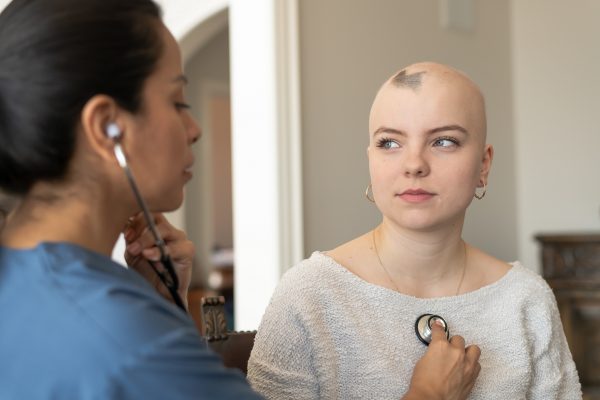
Bristol Myers Squibb (BMS) recently announced that the TRANSCEND CLL 004 trial evaluating Breyanzi® (lisocabtagene maraleucel) met its primary endpoint of complete response rate vs. historial control in the subgroup of patients with relapsed or refractory (R/R) chronic lymphocytic leukaemia (CLL). The findings of the phase II study suggest that Breyanzi® could be a safe and effective treatment option for these patients.
Chronic lymphocytic leukaemia (CLL) small lymphocytic lymphoma (SLL) are both types of non-Hodgkin lymphoma affecting lymphocytes. While there are treatments available for both CLL and SLL, there is no standard of care for relapsed or refractory (R/R) CLL or SLL after prior treatment with targeted therapies. These patients generally experience shorter periods of response with each subsequent treatment. Breyanzi® (lisocabtagene maraleucel) is a CD 19-directed CAR-T cell therapy with a 4-1BB costimulatory domain, which enhances the expansion and persistence of the CAR-T cells. The TRANSCEND CLL 004 study represents the first multicentre trial evaluating the efficacy of CAR-T cell therapy for heavily pretreated R/R CLL or SLL patients.
The single-arm phase II TRANSCEND CLL 004 trial included 188 adults with R/R CLL or SLL. The participants received lisocabtagene maraleucel monotherapy at the recommended dose from the phase I monotherapy arm. The primary endpoint was complete response rate, including complete remission with incomplete bone marrow recovery.
The results showed that the study met the primary endpoint of complete response rate vs. historical control in the subgroup of patients with R/R CLL. These patients were refractory to a BTK inhibitor and pretreated with a BCL-2 inhibitor. No new safety signals were reported for lisocabtagene maraleucel in this study.
The company plans to present the detailed results of this study at an upcoming medical meeting. The experts are enthusiastic about the preliminary data from TRANSCEND CLL 004 and believe CAR-T cell treatment could be viable for specific patient populations of CLL/SLL. However, they remain circumspect about its toxicity, cost, and complex logistics.
Reference